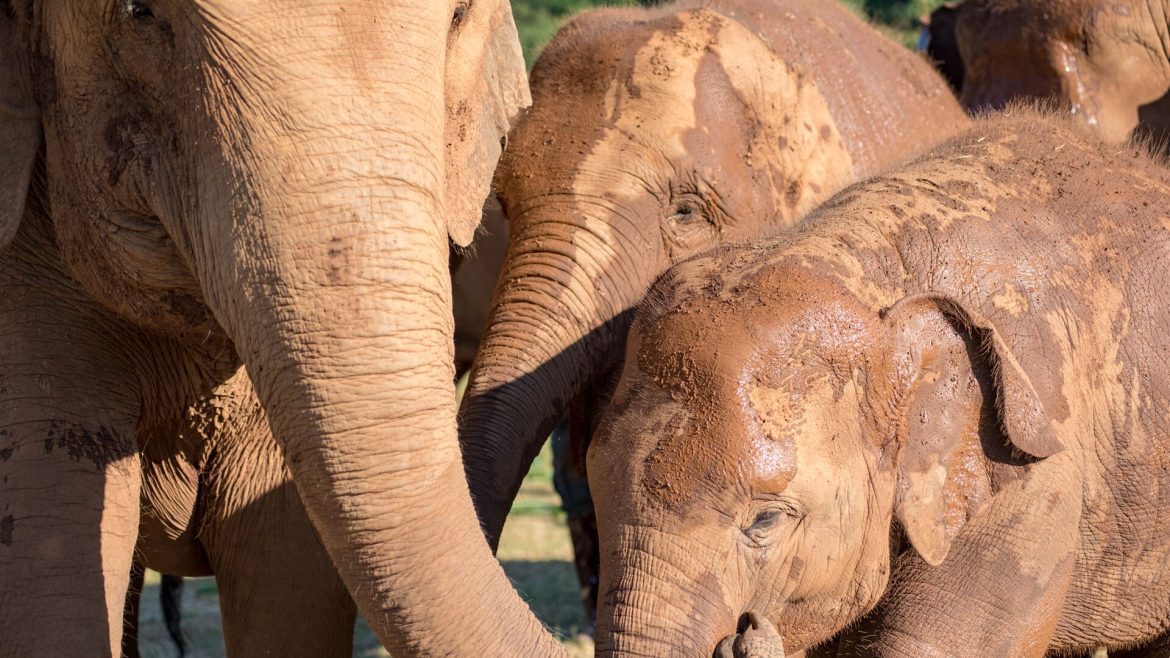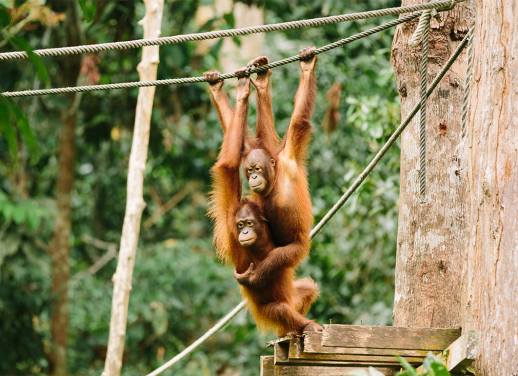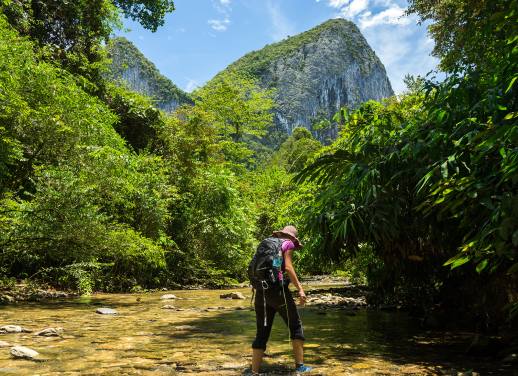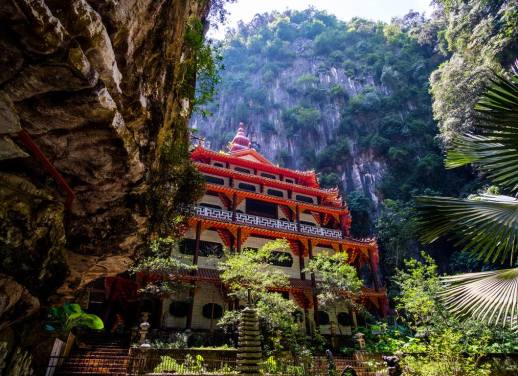Two friends walk side-by-side on a dusty road surrounded by 80 acres of jungle. They stop to look at each other for a moment as if contemplating their next move before one follows the other into a cool pond to beat the heat. At 9:45 am, the Krabi sun is already making itself known in the early hours of the day.
Their names are Dao Rueng and Lao Thong Chaba, and they’re rescued elephants. Now aged 28 and 41, they’ve found a home at an elephant sanctuary after years in the logging and elephant riding industry. Following Giants is an ethical sanctuary in Thailand’s coastal province of Krabi that focuses on providing a peaceful, natural environment for elephants. At their core, they advocate for observation over interaction.
Dao Reung and Lao Thong bathe below banana and pineapple trees in a pond at least three times the size of an Olympic pool. They dip and dive under the water, trunks flailing around in the air. One holds onto a trunkful of reeds and dunks them in and out of the water as if to marinate them before chowing down.
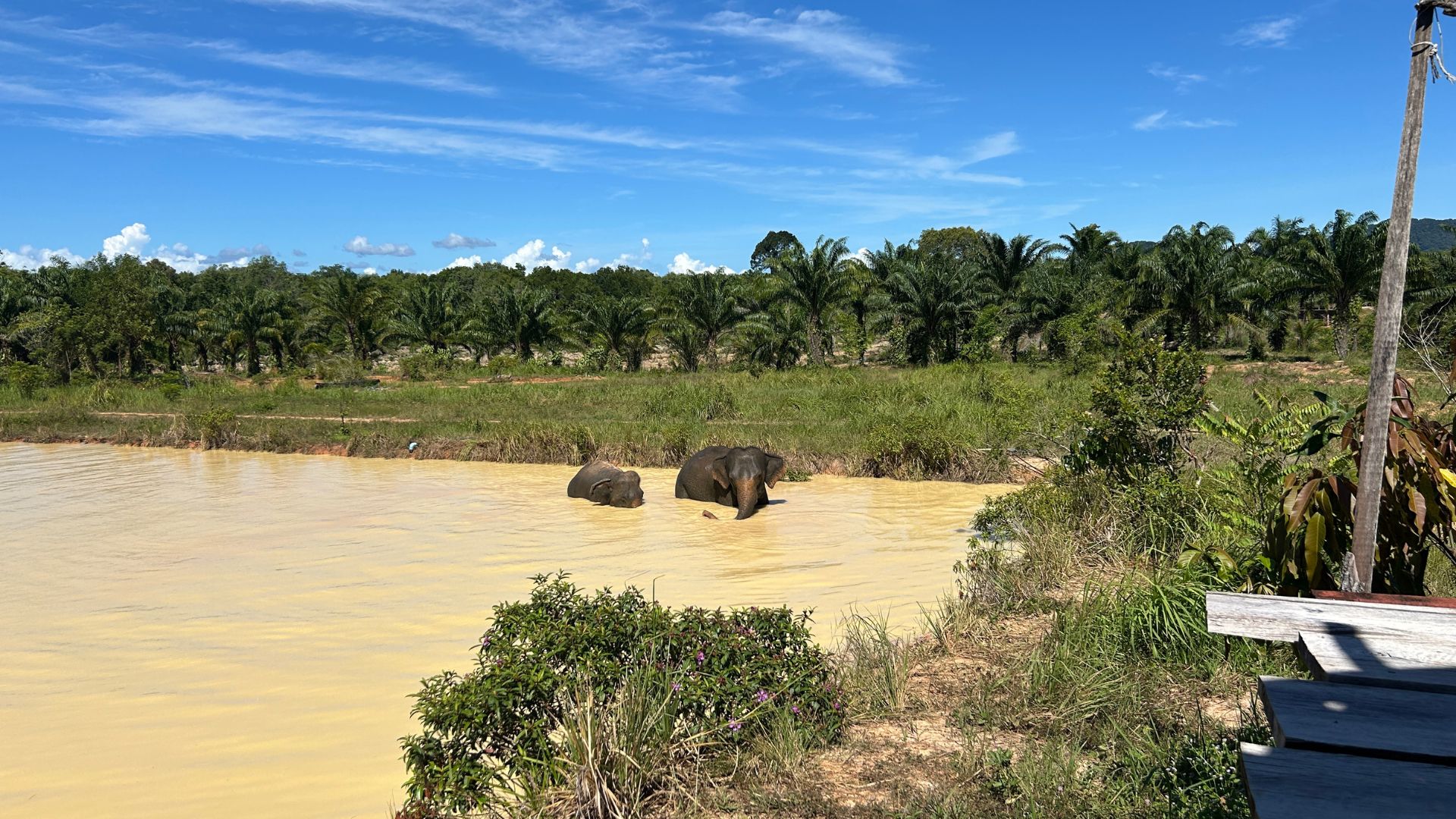
On the other side of the pond, seven-year-old Mongkoln swings his trunk in the air before covering himself in dirt and mud – a sign of happiness.
Standing safely from a distance, a small group of us are huddled on a wooden viewing platform, quietly watching these magnificent creatures from afar. There’s no bathing, riding, patting or feeding the elephants – just total adoration.
Following Giants wants this experience to be the norm for visitors to Thailand. Their mission to create a better future for elephants is supported by one of The Intrepid Foundation’s newest partners: World Animal Protection Thailand. This organisation is dedicated to advocacy and education, transforming Thailand’s tourism industry and improving the lives of elephants in captivity by joining forces with sanctuaries like Following Giants.
The threat of unethical elephant tourism
A decade ago, Intrepid announced that it would no longer offer elephant rides on trips. However, many companies continue to offer experiences that don’t prioritise the well-being of elephants – like elephant rides, bathing elephants or performances. While Intrepid doesn’t currently visit Following Giants on any Thailand trips, seeing one of the sanctuaries supported by World Animal Protection Thailand in action helped me understand the impact of their work.
I spoke with Roatchana (Nui) Sungthong, country director at World Animal Protection Thailand and owner of Following Giants, Charae ‘Ray’ Sangkaow.
Ray’s family has owned elephants for six generations. He’s proud to be part of the change in elephant welfare and has worked with World Animal Protection Thailand since 2019 when he started the transition to becoming an elephant-friendly model.
From an outsider’s perspective, it’s easy to suggest that the simple solution would be to stop using captive elephants. Still, Nui explains it’s not that simple. She tells me that elephants have been integral to the country’s history and culture for hundreds of years and celebrated as the national animal.
Elephants – a symbol of Thailand since ancient times
Considered sacred animals, elephants were part of royal ceremony processions in Thailand from as early as the 13th century through the 20th century. They were used in warfare from ancient times through the late 19th century, particularly during the Ayutthaya Kingdom (1350–1767). With the rise of modern weaponry, their military role faded by the end of the 1800s.
In Southern Thailand today, it’s not uncommon for elephants to spend half the year being used for entertainment, including elephant rides, and the other half hauling logs during the tourism off-season.
World Animal Protection Thailand’s goal is to ensure elephants’ health and well-being come first above profit, which I learned is a tricky space to navigate in Thailand, given how intrinsically connected the animals are to modern Thai heritage and culture. Even today, there remains a level respect for elephant carers and their wisdom within the cultural context of Thailand, given how revered elephants are thanks to their historical ties with centuries past. With elephants being so connected to the tourism industry too, there is a large demand for the unethical breeding of elephants that contributes to the cruelty cycle. Earlier this year, World Animal Protection Thailand assessedf837 elephants in 357 sanctuaries across Asia and found that 63% were living in severely inadequate conditions.
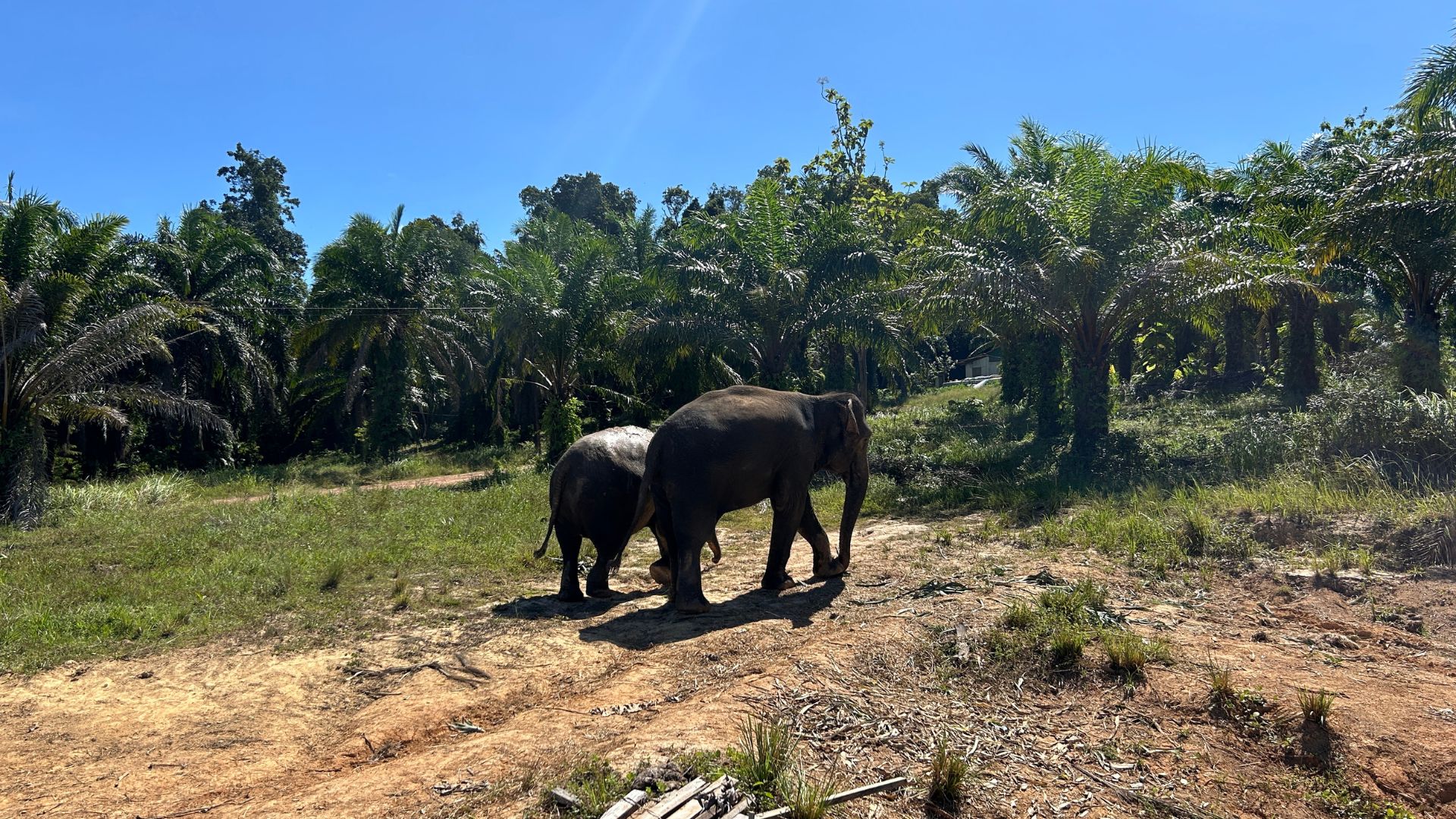
With so many elephants in captivity, it becomes a challenging pursuit to suddenly shut down such a large industry, which puts welfare and improved conditions in view as the ultimate goal. Nui adds, ‘Improving the welfare of captive elephants is a delicate process that requires both fieldwork and systemic changes.’
Ray shares his hopes for future generations to know only of no-touch observation as the only way to see elephants in Thailand. In the meantime, his focus is to give rescued elephants a good life and protect them for the remainder of their years.
When I asked Ray how his family viewed the work of Following Giants, he said his family – including his grandfather – were proud and supportive of the change in direction for elephants. Hearing Ray talk about his family and how elephants have always been part of his life helped me understand the bigger picture of my question, why can’t elephants just be freed? He tells me that a life in captivity leaves many elephants ill-equipped to survive in the wild.
Nui explains that eight elephant sanctuaries in Thailand that are currently supported by World Animal Protection Thailand meet high welfare and ethical standards – and more are to come. These sanctuaries allow travellers the chance to admire elephants in natural or purpose-built environments and to learn about them without directly interacting with them. These venues also make sure the mahouts (elephant caretakers) are not required to make elephants perform for entertainment, including rides, bathing or up-close selfies. When there is no direct interaction between elephants and travellers, it’s considered much safer too.
Small steps and big moves for these gentle giants
One of the eight elephant camps that currently meets this standard is ChaingChill. For almost five years, Intrepid travellers have visited ChaingChill on the Explore Northern Thailand, Thailand Family Holiday, Beautiful Northern Thailand trips and others.
ChaingChill was formerly known as Happy Elephant Care Valley. In 2017, they shifted towards becoming an elephant-friendly venue before reopening in 2019. They stopped offering elephant rides and transitioned to a thriving model for high welfare, ethical elephant tourism.
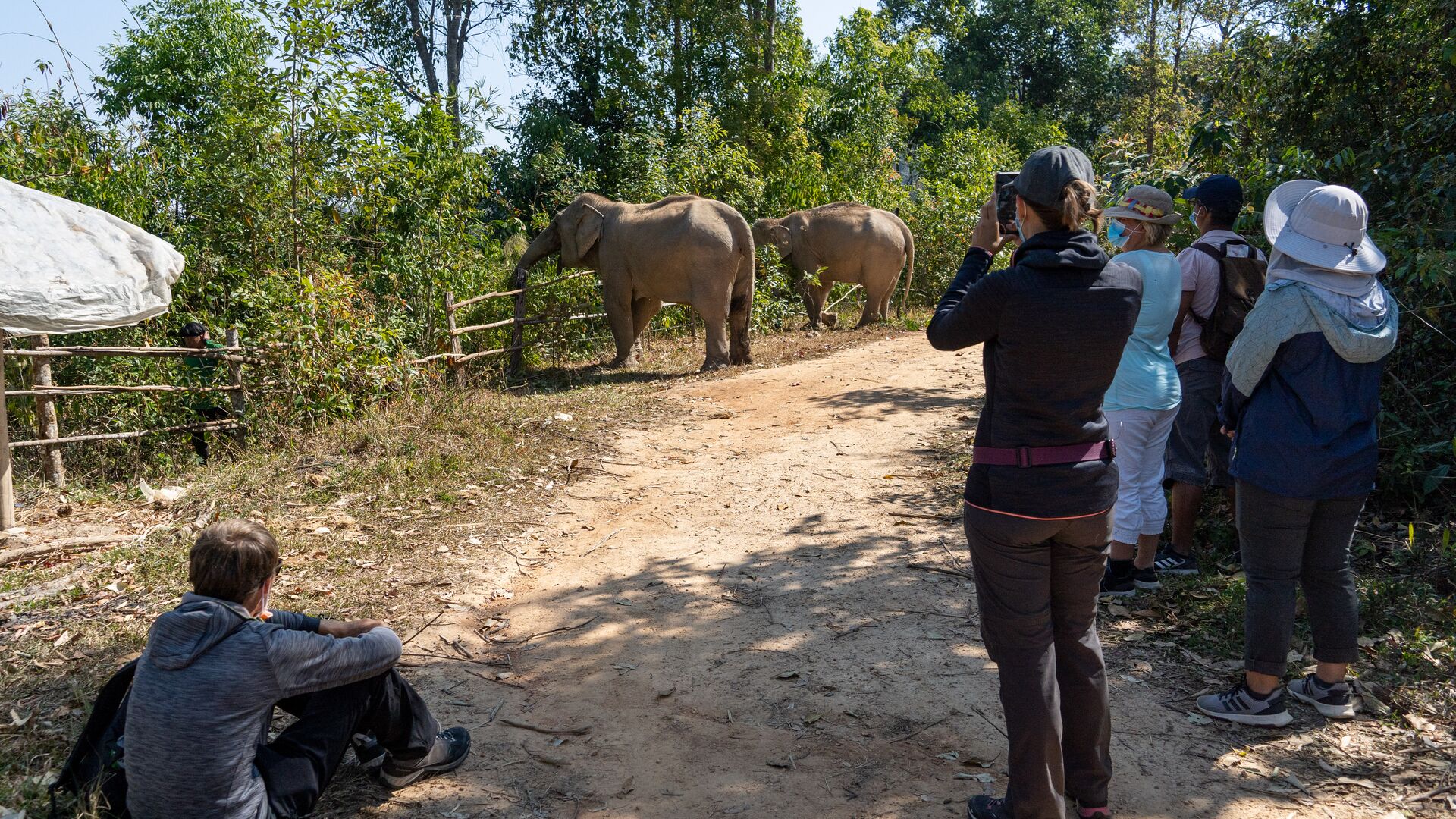
Supakorn Tananseth, owner of ChiangChill, attended a seminar held by World Animal Protection in 2017 and learned about the concept of elephant-friendly sanctuaries. ‘I was inspired to make the transition,’ he says. ‘I soon realized that tourists enjoyed the new ChangChill activities and provided very positive feedback as a result.’
ChiangChill is now considered a leading example of how positive change can happen.
All ears for positive change ahead
While almost 3000 elephants are still being used for entertainment and hauling logs, the work of World Animal Protection Thailand to support responsible projects like ChangChill and Following Giants can inspire other venues to make the switch and show it’s possible to be a successful venue that acts with animal welfare first.
Nui encourages travellers to be just as much a part of the solution – to take time to research and choose their wildlife experiences wisely. As demand from travellers shifts to support elephant-friendly sanctuaries, the hope and vision is that other operators will naturally adapt, too.
For elephants like Dao Rueng, Lao Thong Chaba and Mongkoln, the future is already looking better.
Learn more about animal welfare and advocacy from World Animal Protection Thailand and how The Intrepid Foundation supports them. To see elephants in a responsible way, take a look at Intrepid’s trips to Thailand.

